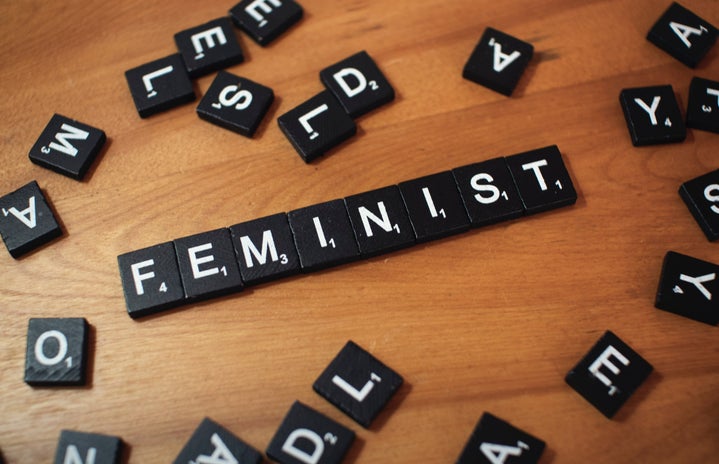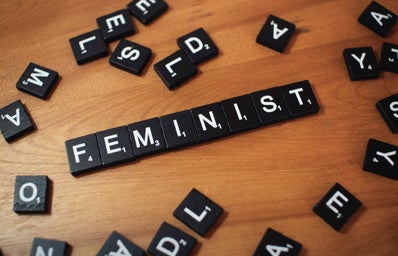The Women, Gender, and Sexuality Studies Honor Society, Iota Iota Iota organized a panel event called “Unlearning Neoliberal Feminisms Together.” It was made up of American University faculty with extensive knowledge of neoliberalism and feminism.
The definition of neoliberal feminism as provided by Iota Iota Iota is “a feminism that reduces women’s issues to the problems facing women in the professional class and prescribes a constant monitoring of one’s own attitude and savvy self-investment as the remedy.”
- How does a neoliberal context affect people differently given the identities they hold?
-
One of the panelists, Dr. Tanja Aho, an American Studies Professor, answers, “if we want to think about identity being affected by a neoliberal society we have to think about how society negatively impacts the marginalized. We have to keep white supremacy in mind.”
They bring up a great point that neoliberal feminism harms marginalized people and intersectionality is what we need to focus on if we really want to see change for those who really need it.
Another panelist who stood out among the panelists was Professor Sybil Williams, the director of the African American and African Diaspora Studies Program. She brought an eye-opening woman of color perspective to the panel.
Professor Williams said that black women “have to choose which oppression is represented. People are marginalized by the movements meant for them.” For example, she discussed having to have a specific Say Her Name movement reveals how marginalized African American women are, even within race movements. Feminists may look to support other women, but intentionally or unintentionally exclude women of color from the discussion.
Dr. Elizabeth Rule, a Postdoctoral Fellow in the American Studies Department, then brought up the insidiousness of neoliberalism co-opting terms like female empowerment and feminism. She discussed how “individuals can exist in places of power and that represents a larger shift in the power dynamics of society, but also how are you able to buy a feminist lipstick that is going to make you more successful in the workplace. ”
This is a good example of how feminism has become capitalist, which leads her to question “how does language of empowerment become so common and acceptable and palatable in society that it no longer has power that it is exhibiting no real threat to the powers that be?”
- What does working against neoliberal values look like?
-
Panelist Dr. AntoanetaTileva, a professor of Anthropology, responds, “we have to think about how female empowerment has been very narrow-minded and economically defined. Neoliberalism thinks that rights are limited, almost that there is a finite supply of rights… which is how it make sure to create competition against marginalized groups.” This is a terrible thing. The feeling that we can help some, but not all. That some marginalized groups have to be left out.
Dr. Aho adds that “economic rights and economic justice are two different things. Even though I was a poor graduate student I was still very privileged.” She said that we, even though we may not have much, can still help by sharing a meal with someone. They say we must “make a plan and start doing it. Don’t wait to donate or support communities. You can start right now.” Their immediate call to action was alerting to the crowd in the room.
- How do we make intersectional feminism more accessible to the masses?
-
Professor Williams responds with an anecdote, “sometimes I don’t even use the word feminism when I’m working with certain communities because they have been working within a feminist capacity all their lives.” She uses “Africana Womanism” instead because feminism was created by white women and is seen largely as for white women.
She says, “to her ancestors, it became important to take on the struggle of the race because this is the work African women have done all along.” She asserts, “I’m carrying on the work of ancestors who have done that work forever. We’re not talking about feminism, we’re talking about work, liberation, freedom, and often rebellion. Feminism is found everywhere in every shape and capacity and it may not look like what we think it should.”
Williams made a strong point that feminism can be exclusionary. Dr. Mary Ellen Curtin, a professor of American Studies adds, saying we need to “give people space and opportunity to voice their needs. Whatever we can do to create those spaces. I think this kind of history (of feminism) does have to be presented in schools and should be a universal curriculum.”
Dr. Rule continues in expressing that Feminism shouldn’t always be comfortable. “It should be uncomfortable. It’s not a t-shirt where the proceeds go to whatever. That’s not the end all be all and what are the politics behind all of that,” she states firmly.
Additionally, Dr. Rule explains, “one reason Indigenous communities bump against feminism is because of gender roles. Mainstream feminism teaches us to reject gender roles. In some Indigenous societies, there are hardly prescribe gender roles where Indigenous women are the matriarchs and in charge of mothering. You may also have non-binary people in that matrix too. How do we embrace the idea that women may have a particular gendered role in society?”
What I’ve learned about feminism from this panel is that it’s so much more than what people see on the surface. True feminism is intersectional and inclusive. It’s not a t-shirt that says feminist but saving money to donate to a good cause. It’s sharing a meal with a friend who can’t afford one or calling out discrimination against marginalized communities and people. In the end, feminism is kindness and standing up for what’s right, even if you don’t understand the cause at first. Feminism is educating yourself by attending panels like the one I did. Holding yourself accountable to help others and to be and do better: that is what a feminist does.



